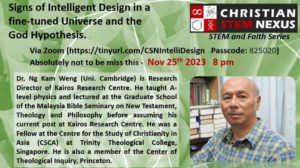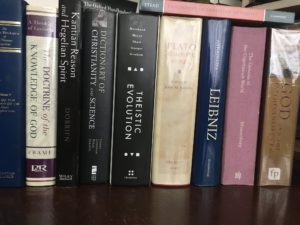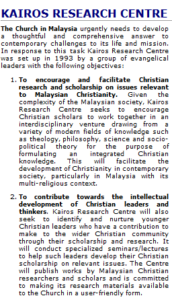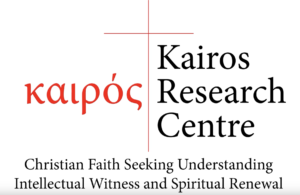Category: Announcements
Talk: Signs of Intelligent Design in a Fine-tuned Universe and the God Hypothesis.

Link to video – Intelligent Design & the GOD Hypothesis
This talk was delivered originally at the Christian STEM Nexus Forum in Nov. 2023. It explains why the “God Hypothesis” offers an explanation of the origin of the universe better than chance in the light of new developments in contemporary cosmology. Issues discussed include (1) How the Universe came into existence, (2) Intelligent Design and Irreducible Complexity in fine-tuned universe.
1 The heavens declare the glory of God,
and the sky above proclaims his handiwork.
2 Day to day pours out speech,
and night to night reveals knowledge.
3 There is no speech, nor are there words,
whose voice is not heard.
4 Their voice goes out through all the earth,
and their words to the end of the world (Psalm 19: 1-4).
Originally published on 25 Nov 2023. Updated on 13 June 2024
 |
 |
Christian Faith Seeking Understanding,
Intellectual Witness, and Spiritual Renewal
We are pleased to announce that Kairos Research Centre has launched the Kairos Podcast program, an ongoing series of videos talks dealing with a wide range subjects like theology, philosophy, biblical theology, ethics, social theory etc. from the Christian perspective.
You are welcome to view its growing library of video talks at Kairos Podcast.
Faith and Integration of Knowledge. Part 4. Christian Foundation of Modern Empirical Science

Faith and Integration of Knowledge
Christian Foundation of Modern Empirical Science
Part 4. Question: Christians have argued that the emergence of modern science is premised on presuppositions of the Christian worldview. What are some of these unique features in the Christian worldview that contribute to the emergence of modern empirical science?
Discussants: Dr. Ng Kam Weng and Dr. Rodney Toh.
You are welcome to join the discussion at:
Part 4. Christian Foundation of Modern Empirical Science
Please forward this message if you find the video discussion helpful.
Faith and Integration of Knowledge. Part 3. How Do We Integrate Science and Christianity?

Faith and Integration of Knowledge
Part 3. Question: How do we integrate science and Christianity?
Discussants: Dr. Ng Kam Weng and Dr. Rodney Toh.
There are six ways to relate science and Christianity: conflict, independence, complementation, dialogue, integration and transformation.
You are welcome to join the discussion at:
Part 3. Question: How do we integrate science and Christianity?
Please forward this message if you find the video discussion helpful.
Faith and Integration of Knowledge. Part 2. What is the Relationship Between the Bible and science?

Question: If there is no conflict between Christianity and science, does this mean that the Bible is scientifically reliable? What is the relationship between the Bible and science?
Discussants: Dr. Ng Kam Weng and Dr. Rodney Toh.
You are welcome to join the discussion at:
What is the Relationship Between the Bible and science?
Please forward this message if you find the video discussion helpful.
Faith and Integration of Knowledge. Part 1 – Alleged Conflict between Science & Christianity

Part 1. Alleged Conflict between Science & Christianity
Question: If Christianity is based on faith in the supernatural world, whereas science is based on facts in the natural world, then they are incompatible. To what extent is this correct?
Discussants: Dr. Ng Kam Weng and Dr. Rodney Toh.
You are welcome to watch the video and join the discussion at:
Alleged Conflict between Science & Christianity
Kairos Seminar on Modern Philosophy and Christian Thought. Part 1

Modern Philosophy Part 1: From Descartes to Hegel
Lecturer: Dr. Ng Kam Weng
The scientific revolution in the 16th -18th century created a radically new conception of the world which challenged the traditional worldview based on Aristotelian philosophy and medieval Christian thought. This seminar examines how European philosophers represented by Rene Descartes, David Hume, Kant and Hegel reformulated philosophy in response to the increasingly dominant scientific worldview of their times.
Class Schedule – 27/05; 24/06; 29/07; 26/08; 30/09; 28/10 (bonus week, to be confirmed).
The seminar will be conducted every last Saturday of the month from 10.00 am to 12.00 noon. Class begins from 27 May 2023, if the minimum number of registered students is satisfied.
Venue:
Kairos Research Centre, 19B, Jalan SS 22/19, Petaling Jaya 47300. [Revised on 27 Jan 2023]. Continue reading “Kairos Seminar on Modern Philosophy and Christian Thought. Part 1”
Just Published by Kairos Research Centre! Christianity and the Social Order by Dr. Ng Kam Weng
CHRISTIANITY AND THE SOCIAL ORDER
By Dr. Ng Kam Weng
 350 pages, 8.3” x 5.8” x 0.85”
350 pages, 8.3” x 5.8” x 0.85”
ISBN: 978-629-97691-0-1 Continue reading “Just Published by Kairos Research Centre! Christianity and the Social Order by Dr. Ng Kam Weng”
Calling for Papers for Kairos Theological Symposium 2023

What is a symposium? It is 1) A conference or meeting to discuss a particular subject, or 2) A drinking party or convivial discussion, especially as held in ancient Greece after a banquet.
Date of Symposium: Saturday 11 Feb 2023
Venue: Petaling Jaya
Time: 9.00 am to 3.30 pm
I. Kairos Research Centre is convening two theological symposiums for the year 2023 (Feb 2023 and Sept 2023).
II. The symposium will discuss papers addressing issues in 1) Systematic Theology, 2) Biblical Studies, 3) Contemporary Issues and 4) Asian Church History and Mission.
The symposium will be held from 9.00 am to 3.30 pm on Saturday 11 Feb 2023. Five papers will be presented for discussion. Instead of a Greek banquet, there will be free coffee. Lunch will also be provided. Yes, there is still free lunch in today’s world.
III. Calling for Papers
Kairos is calling for papers (2500-4000 words) to be presented at the symposium. Each paper writer-presenter will be given a small honorarium of RM 200. Continue reading “Calling for Papers for Kairos Theological Symposium 2023”